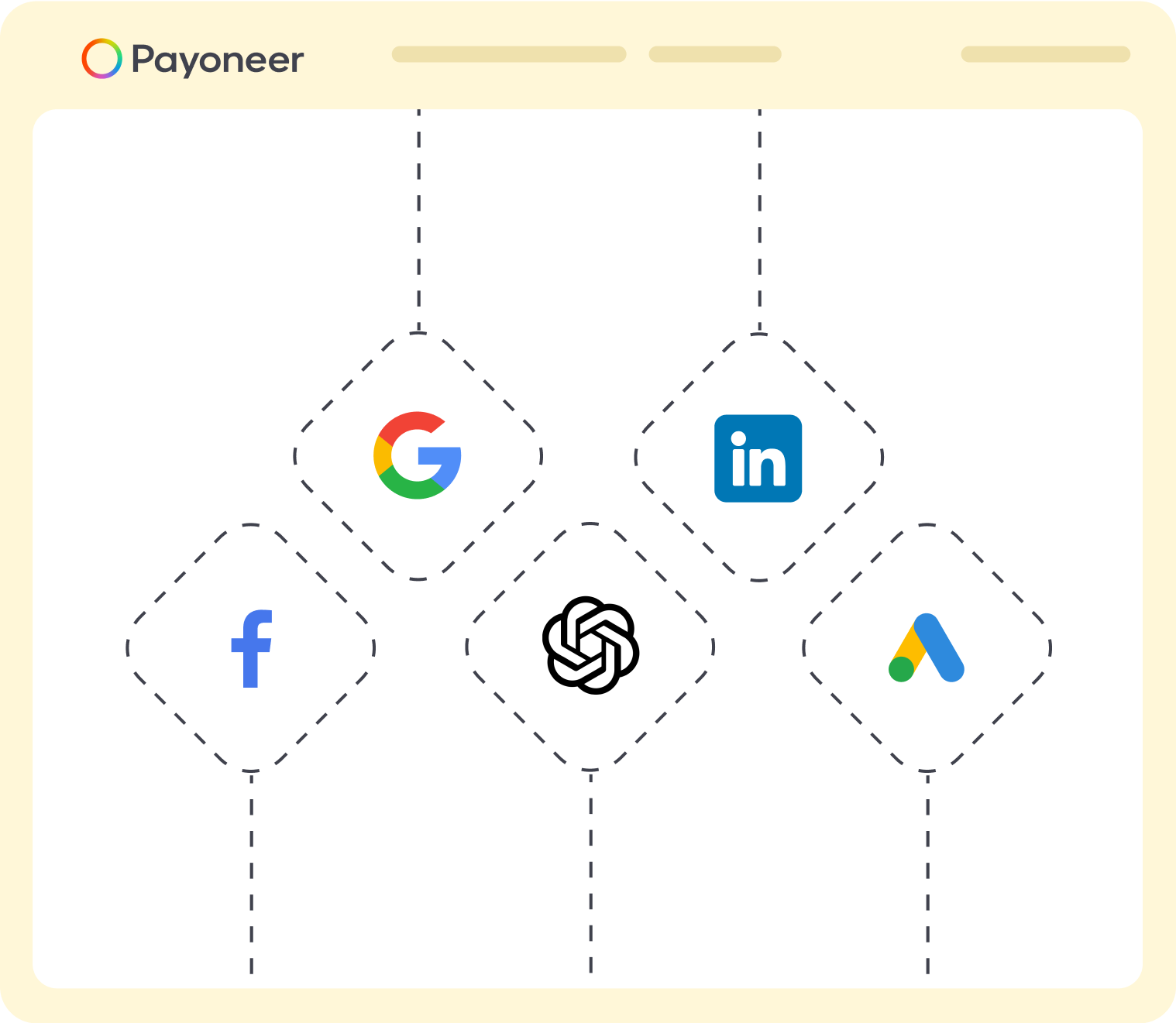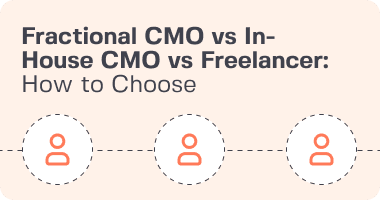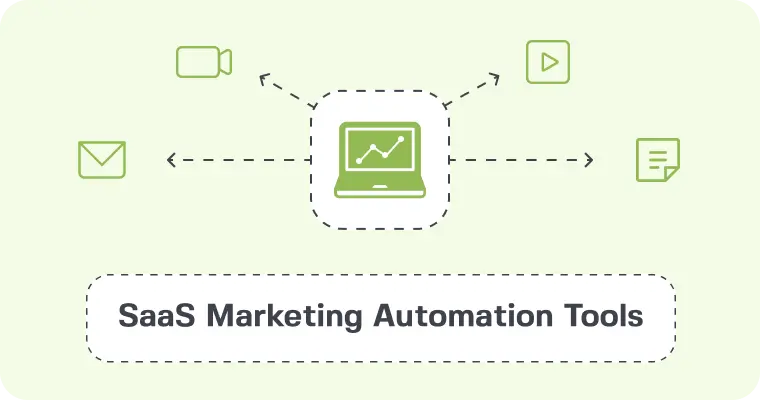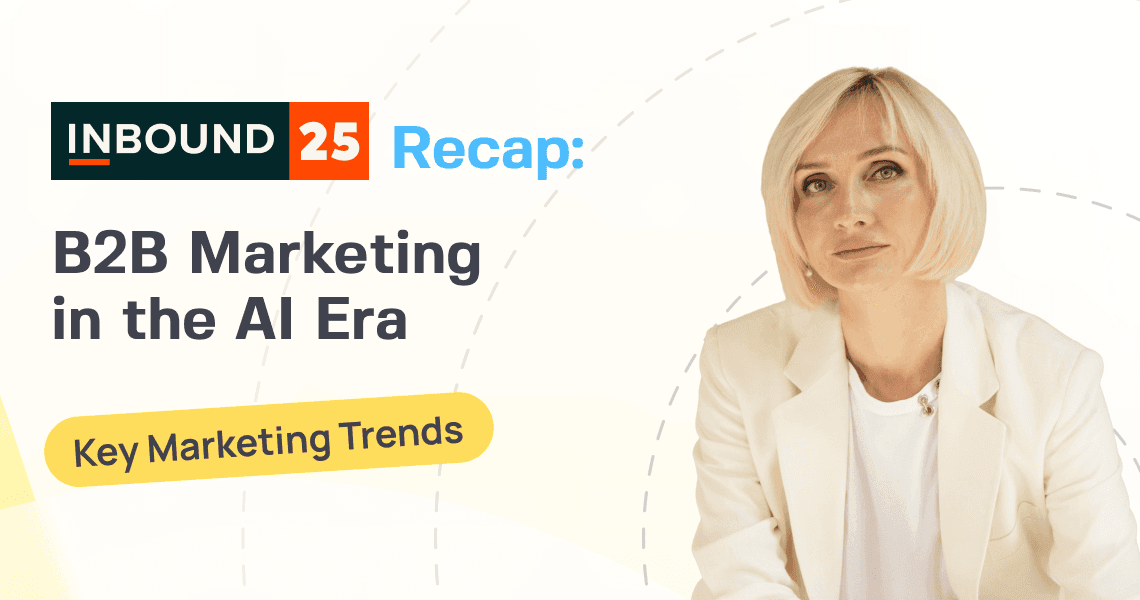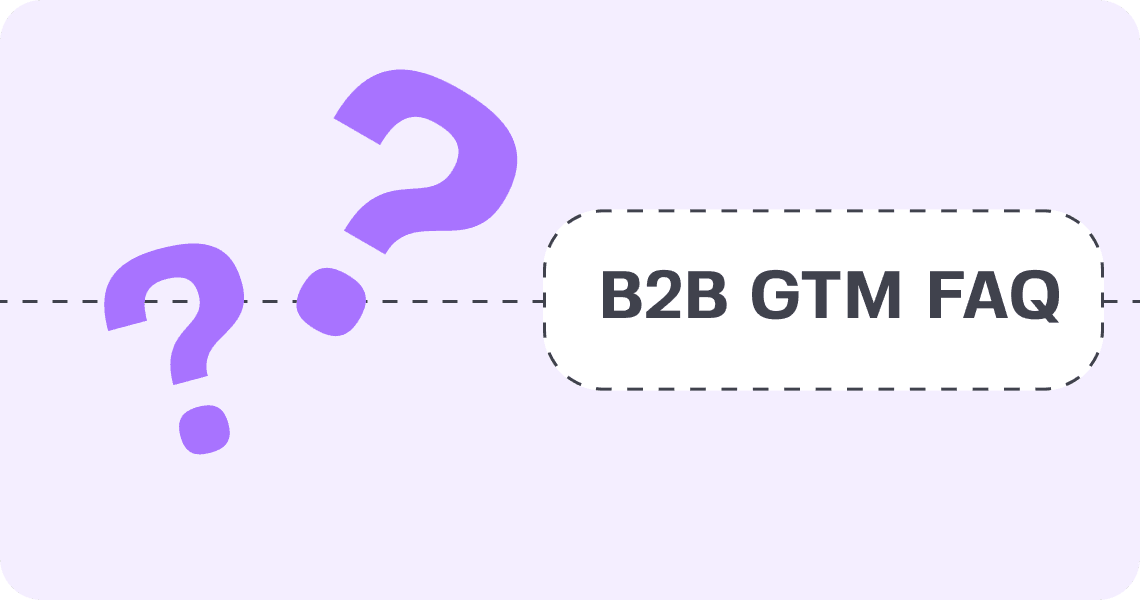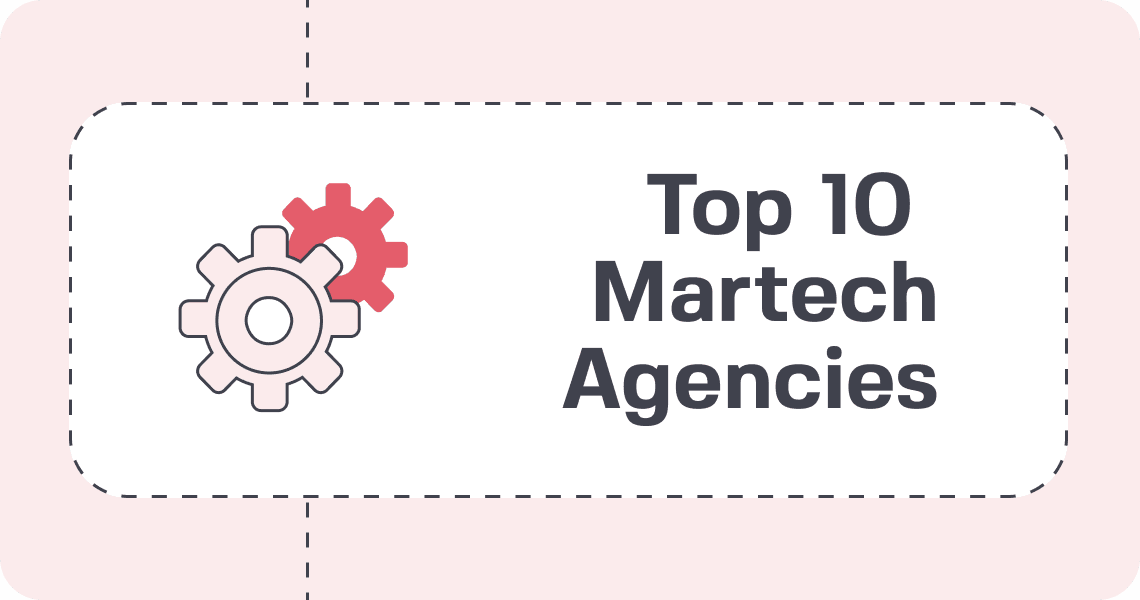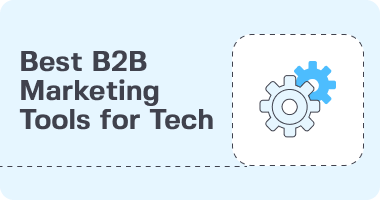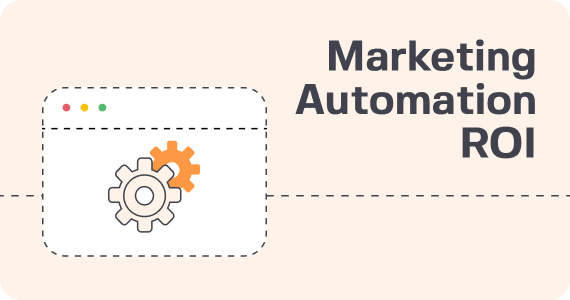Not all marketing automation solutions are created equal. Depending on your business needs, target audience, and resources, different types of marketing automation may be more suitable.
A small e-commerce startup with a limited budget and a focus on building brand awareness may find that email marketing automation is the most cost-effective solution. On the other hand, a B2B software company targeting enterprise clients may benefit more from CRM and sales automation.
In this blog post, we’ll explore some common types of marketing automation and provide insights into choosing the best fit for your organization, along with tips on implementation.
Types of Marketing Automation
There are various types of marketing automation tailored to meet the needs of modern businesses:
- Email Marketing Automation
- Social Media Marketing Automation
- CRM and Sales Automation
- Lead Generation and Nurturing Automation
- Content Marketing Automation
- Analytics and Reporting Automation
- Ad Campaign Automation
- Omnichannel Marketing Automation
Let’s explore each of them.
Email Marketing Automation
From receiving personalized offers after signing up for newsletters to getting reminders about abandoned carts, you might have experienced email marketing automation in action as a consumer.
Email is the most frequently automated marketing channel.
65% of marketers leverage email automation.
Social Media Marketing Automation
Ever noticed how brands consistently post content and respond to your queries on social media? That’s the magic of social media marketing automation at work, keeping their presence active and engaging.
In fact, 47% of marketers use marketing automation in social media management.
CRM and Sales Automation
If you’ve ever received timely follow-up emails or calls after expressing interest in a product or service, you’ve likely encountered CRM and sales automation in action, aimed at nurturing leads and closing deals.
Lead Generation and Nurturing Automation
Have you ever downloaded an e-book or signed up for a webinar, only to receive a series of helpful emails guiding you through the topic? That’s lead generation and nurturing automation at play, designed to turn prospects into loyal customers.
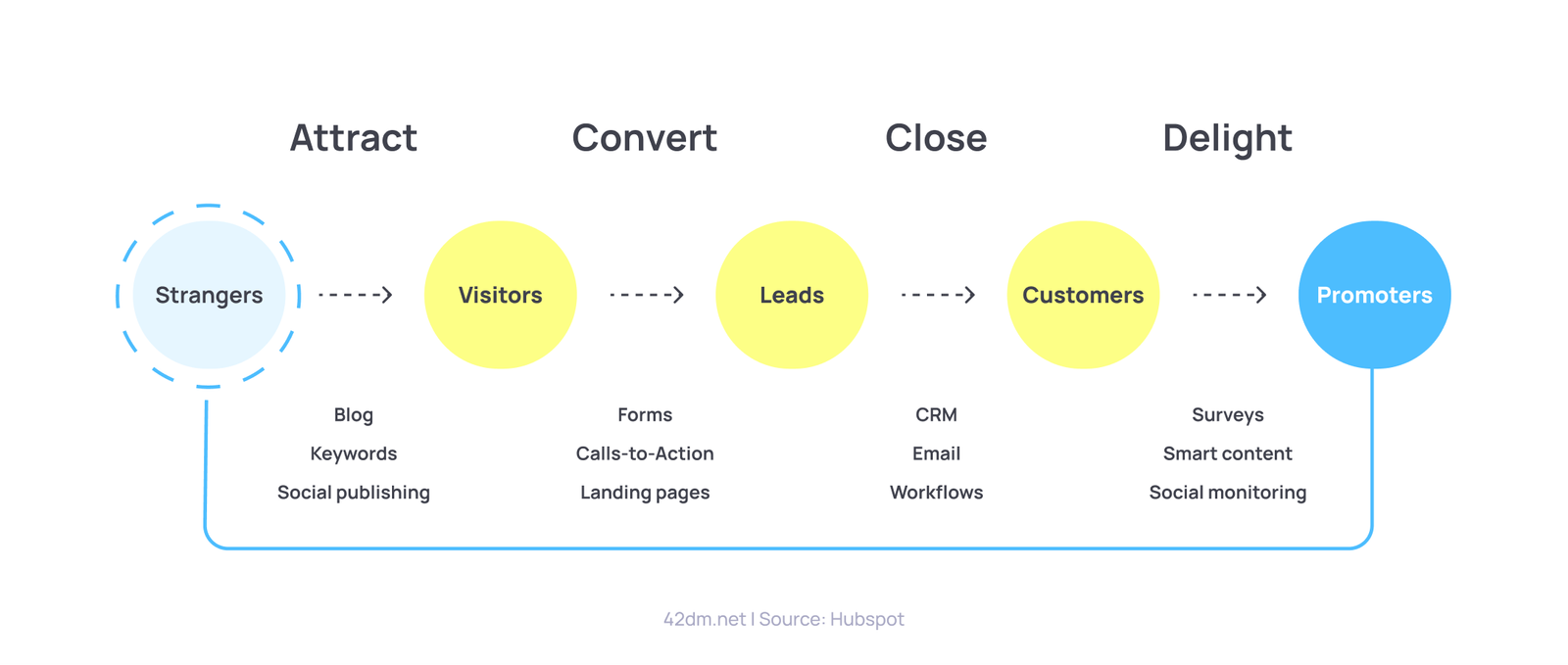
Source: HubSpot
Content Marketing Automation
Whether it’s personalized recommendations on e-commerce platforms or curated content in your social media feed, content marketing automation ensures you receive relevant and engaging content tailored to your interests.
Analytics and Reporting Automation
If you’ve ever received a detailed report on your website’s performance or campaign metrics, you’ve witnessed the power of analytics and reporting automation, providing valuable insights to guide strategic decisions.
Ad Campaign Automation
Ever noticed how ads seem to follow you around the internet after visiting a website or searching for a product? That’s ad campaign automation in action, targeting you with relevant ads based on your online behavior.
Omnichannel Marketing Automation
Have you ever browsed for a product online, added it to your cart, but then received a personalized email reminding you to complete your purchase? That seamless experience across email, website, and maybe even a follow-up call is the magic of omnichannel marketing automation, ensuring a consistent and convenient journey for customers, no matter where they interact with your brand.
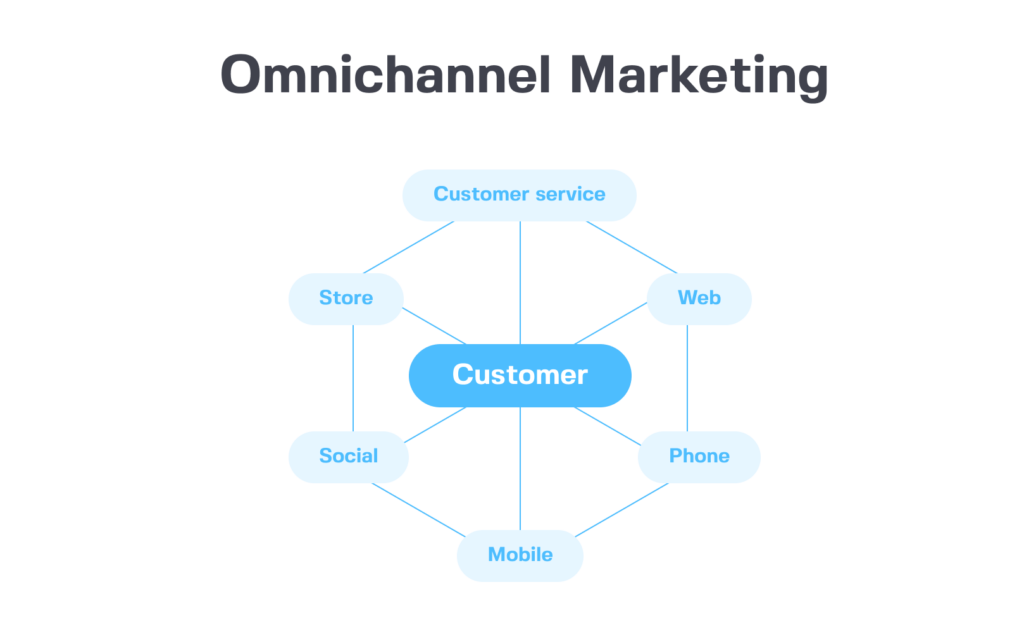
Best Fit for Your Business: Choosing from the Types of Marketing Automation
Email Marketing Automation
Automation plays a key role in email nurture campaigns.
Automation can bring in an ROI of $36 for every $1 spent.
At its core, email marketing automation revolves around delivering the right message to the right person at the right time. This tactic involves setting up automated workflows triggered by specific actions or behaviors, such as signing up for a newsletter or abandoning a shopping cart.
By segmenting your audience based on interests and behaviors, you can tailor your emails to resonate with recipients, whether it’s welcoming new subscribers, nurturing leads with targeted content, or re-engaging dormant customers with special offers.
- List Segmentation: Divide your email list into segments based on demographics, behavior, or engagement levels to deliver hyper-targeted content.
- Drip Campaigns: Set up automated email sequences to nurture leads over time, delivering relevant content at each stage of the buyer’s journey.
- Analytics Tracking: Monitor email open rates, click-through rates, and conversion metrics to measure the effectiveness of your campaigns and optimize performance.
- CRM Integration: Sync your email marketing platform with your CRM system to ensure seamless data flow and personalized communication.
When Should I Pick This Type of Marketing Automation?
18% of companies use automation as their primary email marketing tactic (Hubspot).
If you’re looking to nurture leads and engage customers on a personal level, email marketing automation is your go-to. It’s perfect for businesses aiming to build relationships and drive conversions through targeted communication.
Social Media Marketing Automation
Social media marketing automation is all about maintaining a consistent presence across multiple platforms while maximizing efficiency. With scheduling tools, you can plan and queue posts in advance, ensuring a steady stream of content without the hassle of manual publishing. Additionally, automation allows you to monitor brand mentions and keywords in real-time, enabling timely responses and proactive engagement with your audience. Chatbots further enhance the customer experience by providing instant assistance and driving conversions through personalized interactions.
- Strategy Development: Define your social media goals, target audience, and key performance indicators (KPIs) to inform your automation strategy.
- Engagement Tactics: Schedule posts, respond to comments, and interact with followers in real-time using automation tools.
- Performance Analysis: Track metrics such as reach, engagement, and conversion rates to evaluate the effectiveness of your social media efforts and adjust your strategy accordingly.

Source: SproutSocial
When Should I Pick This Type of Marketing Automation?
If you want to maintain a vibrant social media presence without spending all day glued to your accounts, social media marketing automation is your best friend. It’s ideal for businesses looking to increase brand visibility and foster community engagement.
CRM and Sales Automation
Customer relationship management (CRM) and sales automation tools serve as the backbone of your sales operations, enabling you to manage leads, track interactions, and close deals more efficiently. CRM systems centralize customer data, providing a holistic view of each prospect’s journey and facilitating personalized communication. Sales automation features automate repetitive tasks such as email follow-ups, appointment scheduling, and pipeline management, empowering your sales team to focus on building relationships and closing deals. Integration with marketing automation platforms ensures seamless data flow between departments, enabling alignment and collaboration across the entire organization.

Source: LeadForensics
- Sales Funnel Optimization: Streamline the sales process by automating lead scoring, qualification, and follow-up tasks.
- Customer Retention: Implement automated email campaigns and loyalty programs to nurture existing customers and encourage repeat purchases.
- User Experience Enhancement: Use automation to personalize interactions, provide timely support, and deliver a seamless buying experience across channels.
When Should I Pick This Type of Marketing Automation?
If you’re focused on streamlining your sales process and improving customer relationships, CRM and sales automation is the way to go. It’s essential for businesses looking to optimize their sales funnel and drive revenue growth.
Lead Generation and Nurturing Automation
Lead generation and nurturing automation revolve around identifying potential customers, guiding them through the sales funnel, and building meaningful relationships along the way. This tactic begins with capturing leads through gated content, forms, or landing pages, then employing lead scoring and segmentation techniques to prioritize and personalize outreach efforts. Automated email workflows nurture leads with relevant content and offers, addressing their pain points and objections at each stage of the buyer’s journey. By tracking engagement metrics and adjusting your approach accordingly, you can optimize conversion rates and accelerate sales cycles effectively.
- Behavioral Targeting: Segment leads based on their behavior and preferences to deliver personalized content and offers.
- Conversion Rate Optimization: Test different lead capture forms, landing pages, and calls-to-action to optimize conversion rates and maximize ROI.
- Sales Funnel Optimization: Map out your sales funnel and automate workflows to guide leads through each stage with targeted messaging and offers.
When Should I Pick This Type of Marketing Automation?
If you’re aiming to capture leads and guide them through the buyer’s journey with personalized content, lead generation and nurturing automation is your secret weapon. It’s perfect for businesses looking to increase conversions and build long-term customer relationships.
Content Marketing Automation
Content marketing automation empowers you to streamline content creation, distribution, and optimization processes, enabling you to focus on creativity and strategy. Content curation tools help you discover relevant articles, videos, and social media posts to share with your audience, positioning your brand as a valuable source of information. Content scheduling and publishing platforms ensure your content reaches the right audience at the optimal time, maximizing engagement and visibility. Furthermore, automation enables you to repurpose and recycle content across channels, extending its lifespan and amplifying its impact.
- Scheduling Tools: Use content calendar tools to plan and schedule blog posts, social media updates, and email newsletters in advance.
- SEO Optimization: Identify relevant keywords, optimize meta tags, and analyze content performance to improve search engine visibility.
- Analytics Usage: Track content engagement metrics such as page views, time on page, and social shares to gauge audience interest and refine your content strategy.
When Should I Pick This Type of Marketing Automation?
If you’re struggling to keep up with content creation and distribution, content marketing automation is your lifesaver. It’s ideal for businesses looking to scale their content efforts and deliver valuable insights to their audience.
Analytics and Reporting Automation
Analytics and reporting automation tools transform raw data into actionable insights, empowering you to make informed decisions and optimize your marketing strategies for success. These tools aggregate data from various sources, such as website analytics, email campaigns, and social media engagement, and provide customizable dashboards and reports for analysis. By tracking key performance indicators (KPIs) and monitoring trends over time, you can identify areas of improvement, measure the impact of your campaigns, and allocate resources effectively. Automated alerts and notifications keep you informed of significant changes or anomalies, enabling proactive adjustments to your strategy in real-time.
- Data Collection Tools: Integrate analytics platforms with your website, email marketing, and social media channels to gather comprehensive data.
- Insight Analysis: Use data visualization tools and dashboards to identify trends, patterns, and opportunities for optimization.
- Decision Support Systems: Leverage machine learning algorithms and predictive analytics to generate actionable insights and inform strategic decision-making.
When Should I Pick This Type of Marketing Automation?
If you want to make data-driven decisions and track the success of your marketing efforts, analytics and reporting automation is a must-have. It’s essential for businesses looking to optimize their strategies and maximize ROI.
Ad Campaign Automation
Ad campaign automation revolutionizes the way you manage and optimize your advertising efforts across various channels. Automated ad platforms utilize machine learning algorithms to analyze data, identify trends, and optimize ad targeting and bidding strategies in real-time. By automating tasks such as audience segmentation, ad creative rotation, and budget allocation, these platforms ensure your ads reach the right audience at the right time, maximizing ROI and driving conversions. Furthermore, integration with analytics tools provides valuable insights into ad performance, enabling you to refine your strategies and achieve your advertising goals with precision.
- Bidding Strategies: Set up automated bidding rules and algorithms to optimize ad spend and maximize return on investment (ROI).
- Targeting Adjustments: Use audience segmentation and retargeting tactics to deliver personalized ads to specific demographics or user segments. Improved targeting is the top perceived benefit of marketing automation (Liana)
When Should I Pick This Type of Marketing Automation?
If you’re looking to reach your target audience with personalized ads and maximize your advertising budget, ad campaign automation is your ticket to success. It’s perfect for businesses looking to increase brand awareness and drive conversions through targeted advertising.
Omnichannel Marketing Automation
Omnichannel marketing automation is about creating a cohesive customer experience across all channels, from email and social media to in-store interactions. It uses automation technology to personalize communication and deliver consistent messaging throughout the customer journey. By integrating data from various sources and orchestrating communication across channels, businesses can engage customers more effectively and drive better results. In short, it’s about connecting with customers wherever they are and delivering a seamless experience that keeps them coming back for more.
10% of customer journeys are fully automated (Ascend2)
- Channel Coordination: Coordinate messaging and promotions across multiple channels, ensuring a consistent brand experience for customers.
- Customer Journey Mapping: Map out the customer journey across touchpoints and automate interactions to guide prospects seamlessly from awareness to purchase.
- Consistency Maintenance: Use automation to maintain brand consistency in messaging, design, and user experience across all channels and devices.
When Should I Pick This Type of Marketing Automation?
If you’re focused on delivering a seamless and personalized experience to your customers across multiple channels, omnichannel marketing automation is the way to go. It’s essential for businesses looking to provide a cohesive brand experience and drive customer loyalty.

Source: Chattermill
Frequently Asked Questions
What are the key components of marketing automation?
Marketing automation essentials include social media automation, email marketing automation, CRM integration, omnichannel marketing strategies, content automation, web personalization tools, analytics for insights, and ad campaign automation.
How can social media automation benefit my business?
Social media automation streamlines posting schedules, increases consistency in content delivery, allows for better audience targeting, and helps in analyzing performance metrics efficiently.
Why is email marketing automation important for businesses?
Email marketing automation saves time by sending personalized emails at scale, nurtures leads effectively through automated workflows, boosts engagement with timely messages, and improves overall conversion rates.
How does CRM integration enhance marketing automation efforts?
CRM integration enables a seamless flow of customer data across platforms, facilitates targeted marketing campaigns based on customer behavior and preferences, and helps in creating personalized customer experiences.
What role do analytics play in marketing automation success?
Analytics provide valuable insights into campaign performance metrics, customer behavior patterns, ROI tracking, and help in optimizing future marketing strategies for better results.


